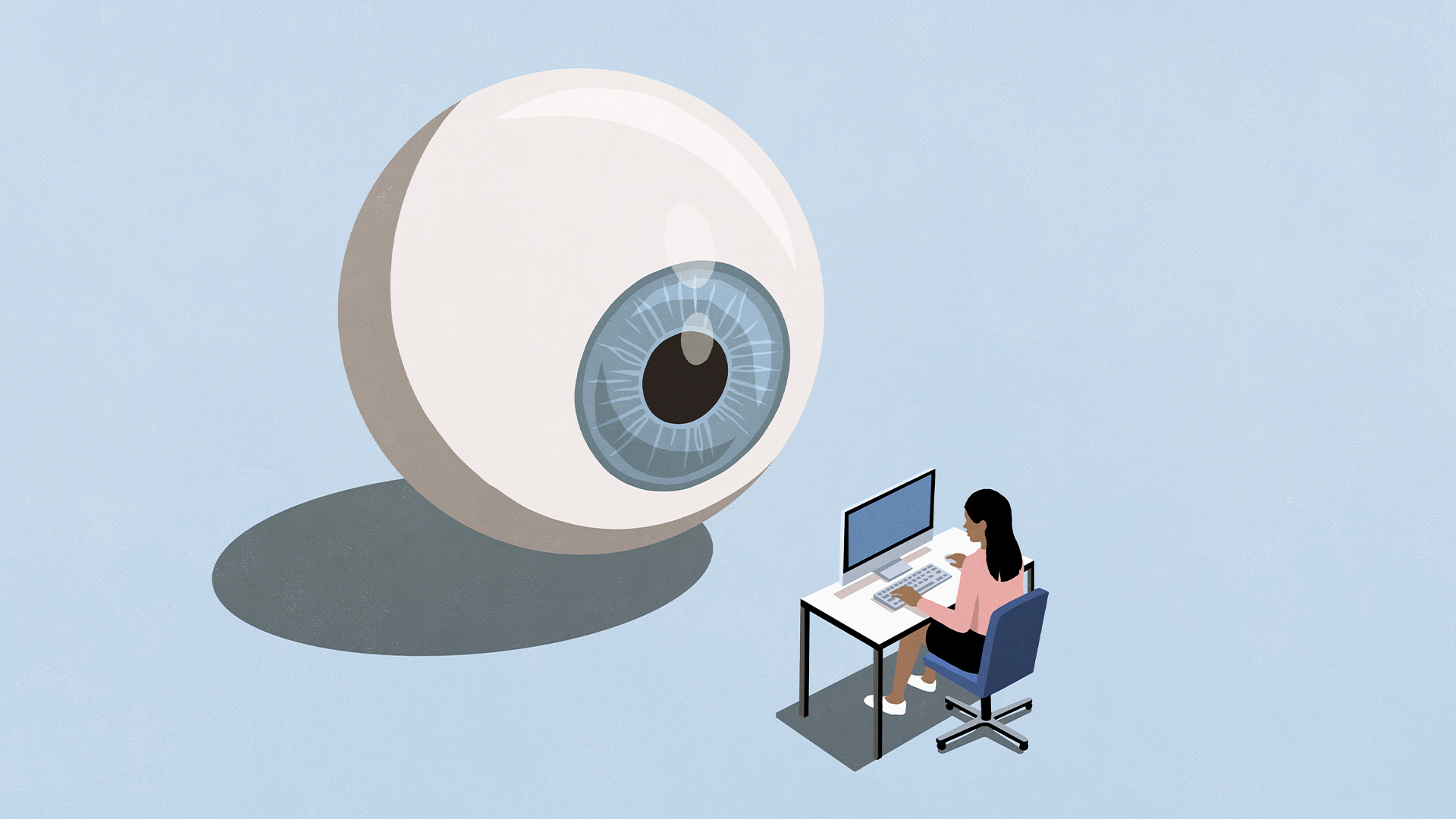The rise of 'bossware' means workers have nowhere to hide from management – companies are tracking productivity, browsing histories, and device activity, and it's destroying workforce morale
Businesses using “bossware” risk damaging trust with employees


A third of British companies are using "bossware" technology to monitor staff when they work from home, and it’s causing serious trust issues among staff.
That's according to a survey of 900 UK managers by the Chartered Management Institute (CMI). Crucially, nearly as many said they didn't know what tracking their employer did, so the figure could well be higher.
“Bossware” is by no means a new concept. Previous research shows there’s been a significant increase in employee monitoring by enterprises, especially with continued hybrid working practices.
Indeed, Brazilian bank Itau laid off 1,000 of its employees after months of quietly monitoring their work from home, finding they did fewer tasks than those in the office.
Some of those were fired for spending just 20% of their time working while still billing for those hours.
How bossware is being used
The CMI study showed 36% are using bossware to monitor staff in the office, while 32% use it on hybrid teams and 30% for remote workers.
Employee monitoring can vary wildly, the study noted, from basic checks that inappropriate content isn't being accessed on company-owned devices to more invasive monitoring which tracks performance.
Sign up today and you will receive a free copy of our Future Focus 2025 report - the leading guidance on AI, cybersecurity and other IT challenges as per 700+ senior executives
The research suggested that the most common type of workplace surveillance was tracking when staff logged in and logged out (39%), followed by looking at browsing history (36%) and reading emails (35%).
However, another 14% are looking at screen activity, using systems to track productivity via screenshots or even monitoring keystrokes.
Does bossware even work?
Whether tracking even works or is of value was questioned by the managers surveyed. Just over half (53%) said they generally supported monitoring of staff activities online on company-owned devices.
However, 42% were against it, saying it didn't improve performance, could damage trust, and led to lower morale. Indeed, one-in-six said they would consider quitting if their employer rolled out such programmes.
In a similar survey from Software Finder last year, three-quarters of tracked employees said such monitoring made them lose trust in their organization – and left them twice as likely as those to be looking for new roles.
Given the debate, why use such monitoring systems? More than half of those surveyed saw such systems as a way to prevent system misuse and protect sensitive data, while 42% said the tools were useful for compliance.
Fewer than three-in-ten said it was useful for performance or to support fairness.
In 2023, the Information Commissioner's Office (ICO) ran a survey that found 70% of people would find it "intrusive" to be monitored by an employer, while a fifth wouldn't want to work for a place that surveilled staff.
The ICO issued guidance on this trend, urging employers to focus on transparency and fairness, and remain conscious of workers rights and privacy legislation when rolling out such systems.
Research at the end of last year showed that such surveillance had moved beyond standard monitoring tools, finding wireless networking equipment was being used to track staff as they moved around an office.
Make sure to follow ITPro on Google News to keep tabs on all our latest news, analysis, and reviews.
MORE FROM ITPRO
Freelance journalist Nicole Kobie first started writing for ITPro in 2007, with bylines in New Scientist, Wired, PC Pro and many more.
Nicole the author of a book about the history of technology, The Long History of the Future.
-
 The modern workplace: Standardizing collaboration for the enterprise IT leader
The modern workplace: Standardizing collaboration for the enterprise IT leaderHow Barco ClickShare Hub is redefining the meeting room
-
 Interim CISA chief uploaded sensitive documents to a public version of ChatGPT
Interim CISA chief uploaded sensitive documents to a public version of ChatGPTNews The incident at CISA raises yet more concerns about the rise of ‘shadow AI’ and data protection risks
